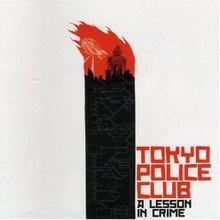
★★★★★ Tracks:
Cold Love
Tim Kasher is partially, if not mostly, responsible for one of my favorite all time albums in Cursive’s Domestica. I’ve followed his career over the span of Cursive’s near twenty years, his side project with The Good Life, and now his solo work, and I’ll continue to do so hoping he catches lightning in a bottle again someday. However over the past few records Kasher’s obsession with his deficiencies in his love life and the monotony of monogamy have grown stale, and things are no different here on his first solo record, The Game of Monogamy. Most of what’s included is too heavy on sappy dissatisfaction and too light on hooks. Songs like “A Grown Man,” “Strays” and “There Must Be Something I’ve Lost” revolve around the growing boredom Kasher experiences in his relationship(s) to very minimal instrumentation. Kasher’s voice and delivery have always been interesting, but they aren’t suited for such sparse backgrounds, and with nominal distractions from his contrived sincerity we've been force fed for the better part of a decade, these songs have me pressing skip every time.
The uptempo tracks are an improvement. And when Tim steps aside and lets the guitars and brass section carry songs forward, as on “I’m Afraid I’m Gonna Die Here” and “Bad, Bad Dreams,” the tragedy in Kasher’s words and the upbeat nature of the music contrast effectively. The best example of this is “Cold Love,” the album’s single and video featuring Molly Parker of Deadwood fame. “Cold Love” is one of the louder tracks and it's obvious this is where Kasher is most comfortable; when he's mixing solid rock hooks with his signature cynical lyricism (“Maybe we got tired of the same old dessert / We grew up in a world of thirty-one flavors / Maybe we're just tired of this vanilla existence”), glimpses of how promising the album might have been had it stayed away from the heavy-hearted ballads are apparent.





